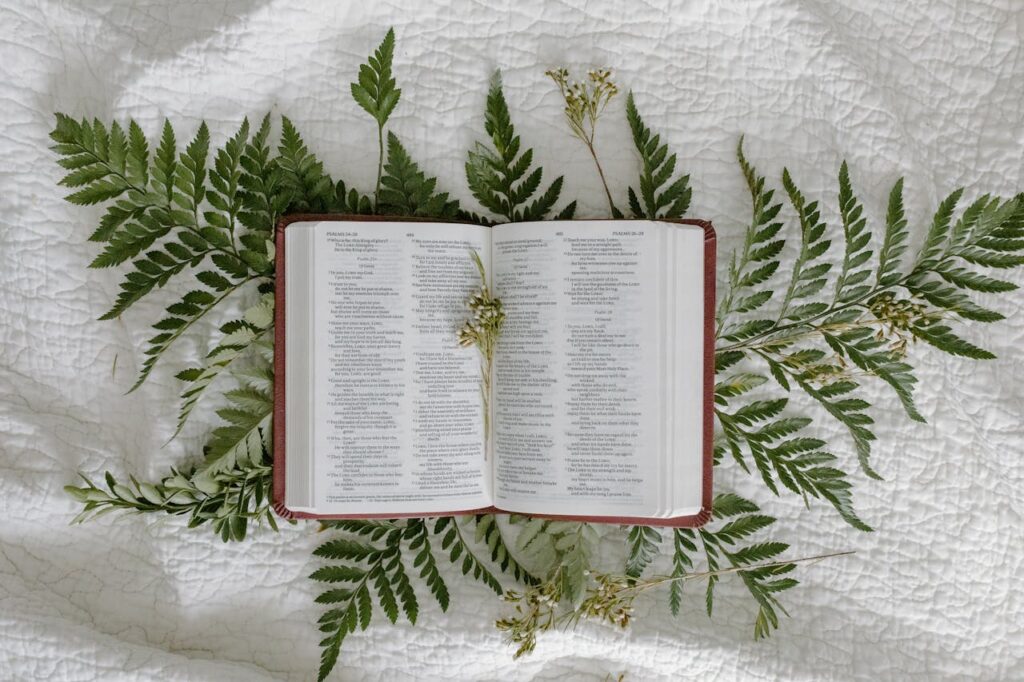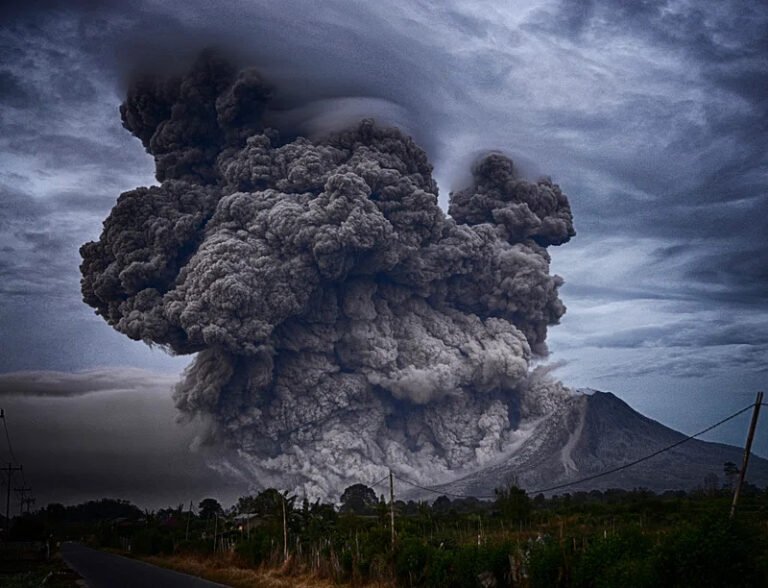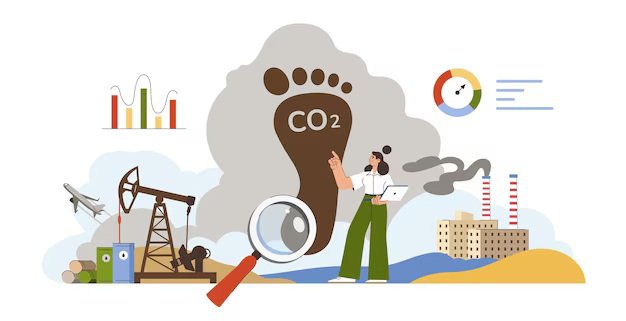11 Best Bible Quotes on Environmental Stewardship
The Bible says, “The earth is the Lord’s, and everything in it, the world, and all who live in it” (Psalm 24:1). Think about that for a moment. It’s a gentle reminder that this beautiful world isn’t something we own or control. It’s a gift—a sacred treasure entrusted to us by God. But what do we do with gifts we care about? We protect them, cherish them, and use them wisely.
Today, the world is facing a climate crisis that feels overwhelming. Floods, wildfires, and disappearing forests make headlines almost every day. It’s easy to feel powerless, but as people of faith, we have a deep well of wisdom from which to draw. Scripture can guide us in how to care for the earth and all its creatures, showing us that stewardship isn’t just about duty—it’s about love.
In this guide, we’ll go through what the Bible says about taking care of creation. We’ll explore practical steps you can take, hear real-life stories of faith in action, and see how science and faith beautifully complement each other. By the end, you’ll feel inspired and ready to make small, meaningful changes that honour God and care for the planet.

In This Article
- Biblical Foundations of Environmental Stewardship
- Why Creation Matters to God
- Real-World Stories of Faith and Sustainability
- Practical Insights: Living Out Stewardship
- Expert Perspectives: What the Scholars Say
- Case Study: Climate Change and Its Impact on Communities
- Personal Reflection: My Journey with Creation Care
- Conclusion: Actionable Steps for a Greener Faith
Biblical Foundations of Environmental Stewardship
“Dominion” vs. “Stewardship”
Let’s talk about a verse that often gets people scratching their heads: Genesis 1:28. It says, “Be fruitful and increase in number; fill the earth and subdue it. Rule over the fish in the sea and the birds in the sky and over every living creature that moves on the ground.” At first glance, it might sound like we’re given a free pass to do whatever we want with the planet. But hold on—there’s more to it than that.
Theologians tell us that the words “subdue” and “rule” in this passage have been misunderstood. The original Hebrew word for “subdue” (“kabash”) actually means something closer to responsible management. Think of it as being in charge but in a way that cares for and protects what’s under your care. Similarly, “rule” (“radah”) is about leading with love and responsibility, much like a good shepherd looks after their sheep.
So, it’s not about domination or exploitation. It’s about stewardship—taking care of the earth, its creatures, and resources as if they’re on loan from God. We’re caretakers, not owners.
The Garden Mandate
Then there’s Genesis 2:15, which says, “The Lord God took the man and put him in the Garden of Eden to work it and take care of it.” This is what some people call the “garden mandate.” It’s pretty clear: we’re meant to look after the earth, not just use it up.
The balance here is key. Yes, we’re supposed to work the land—grow food, build communities, and make life flourish. But we’re also called to care for it, ensuring it stays healthy and abundant for future generations. It’s a partnership with God to keep creation thriving.
Learn More: 10 Environmental Books for Young Adults to Read This Year
Why Creation Matters to God
Have you ever stood under a star-filled sky and felt something bigger than yourself? Psalm 19:1 says, “The heavens declare the glory of God; the skies proclaim the work of his hands.” Nature is like God’s artwork, showing us his power and creativity in ways words can’t. Every sunrise, ocean wave, and blooming flower reflects a piece of who God is. When we carelessly harm the environment, it’s like tearing apart a masterpiece. It’s not just about the planet; it’s about honouring the Creator behind it all.
And there’s more to the story. Romans 8:19-21 tells us that creation isn’t just sitting there; it’s “groaning,” waiting to be healed, just like we are. God’s plan to fix the brokenness in the world includes not just people but the earth itself. When we work to restore the environment—whether planting a tree or reducing waste—we’re part of that bigger picture. We’re not just saving the planet; we’re joining God in making all things new.
Real-World Stories of Faith and Sustainability
A Farmer’s Testament
Meet John, a humble farmer from Iowa with a deep sense of faith. For John, farming isn’t just a job—it’s his way of connecting with God. “I see farming as worship,” he says with a warm smile. “When I care for the soil, I’m honouring God.”
John’s farm is a living testament to this belief. Instead of taking shortcuts or using methods that harm the land, he’s embraced sustainable practices like crop rotation and organic farming. These aren’t just buzzwords to him; they’re a way of giving the soil its own version of a sabbath rest, as described in Leviticus 25:1-7. The Bible teaches us to let the land rest, and John takes that command seriously.
Over time, his dedication has paid off in unexpected ways. The soil on his farm is healthier than ever, and his crops yield more abundance. But for John, the true reward isn’t the bigger harvest—it’s knowing that he’s doing his part to care for God’s creation. “I’m just a steward,” he says. “This land belongs to God, and it’s my job to take care of it for future generations.”
A Church Goes Green
At St. Mary’s Episcopal Church in Florida, environmental stewardship has become a community mission. It all started with a simple question: How can we honour God by taking better care of the earth?
The congregation decided to install solar panels, cutting their carbon footprint by nearly 40%. But they didn’t stop there. Inspired by Genesis 1:31—“God saw all that he had made, and it was very good”—the church members started a community garden. Now, rows of vegetables and flowers bloom on what used to be an empty lot.
Rev. Sarah Jenkins, the church’s pastor, calls it “a tangible way to say thank you to God.” The garden provides fresh produce for local food banks and brings people together. Families plant seeds side by side, sharing laughter and stories as they work the soil. “We’re not just growing food; we’re growing community,” Rev. Jenkins explains.
This little church in Florida proves that small, faith-driven actions can have a big impact. Whether it’s through solar energy or planting tomatoes, the members of St. Mary’s are showing the world what it means to live out their faith in practical, meaningful ways.
Practical Insights: Living Out Stewardship
Let’s talk about what it really means to live as good stewards of the earth. The Bible gives us so much wisdom that applies directly to the choices we make every day. It’s not about making perfect decisions but about taking small, intentional steps that show care for God’s creation.
Reduce, Reuse, Recycle
Proverbs 21:20 tells us, “The wise store up choice food and olive oil, but fools gulp theirs down.” In simple terms, this means not wasting what we’ve been given. It’s easy to overlook waste in our busy lives, but every little bit adds up. Here are some practical ideas:
- Reduce waste by choosing reusable water bottles, bags, and containers instead of disposable ones. Even saying no to a plastic straw makes a difference over time.
- Reuse creatively. Before throwing something out, ask yourself if it could serve another purpose. Old jars can become plant pots, and worn-out clothes can be repurposed into cleaning rags.
- Recycle smartly. Take the time to learn your local recycling rules. It can be frustrating to sort everything out, but it ensures your efforts aren’t wasted.
These small actions reflect our respect for God’s resources, showing that we value what He’s entrusted to us.
Learn More: 10 Eco-Friendly Projects to Build a Sustainable Community
Sustainable Diet Choices
Did you know the Bible’s first diet was plant-based? Genesis 1:29 says, “I give you every seed-bearing plant… They will be yours for food.” While not everyone needs to go fully vegetarian, even small shifts toward plant-based meals can make a big impact. Research from the University of Oxford shows that cutting back on meat can reduce your carbon footprint by up to 70%.
It’s not just about numbers—it’s about mindfulness. Next time you’re planning meals, try swapping meat for beans or lentils. It’s kinder to the earth and often kinder to your wallet, too.
Energy Conservation
Matthew 5:16 says, “Let your light shine before others.” What if that light came from the sun? Solar energy is a beautiful way to let creation itself power our lives. Switching to renewable energy can cut global carbon emissions dramatically—up to 40%, according to the International Energy Agency.
Even if solar panels aren’t an option, you can still conserve energy. Turn off lights when you leave a room, unplug devices not in use, and consider energy-efficient appliances. These small habits add up and reflect a heart committed to honouring God through creation care.
Expert Perspectives: What the Scholars Say
Dr. Katharine Hayhoe is a climate scientist and a passionate Christian. She believes that looking after the earth isn’t just a nice thing to do—it’s what the Bible calls us to do. “Caring for the planet is not a political issue; it’s a biblical one,” she explains. Dr. Hayhoe’s work shows how small, simple actions—like planting a tree, switching off lights when they’re not needed, or walking instead of driving—can create a ripple effect. Those little things we do every day? They add up and can make a big difference for the planet and future generations.
Pope Francis speaks with urgency and heart about this, too. In his encyclical Laudato Si’, he doesn’t hold back: “The earth, our home, is beginning to look more and more like an immense pile of filth.” Strong words, but they come from love—love for creation and for people. He calls on all of us to experience an “ecological conversion,” which means letting care for the environment become a natural part of how we live our faith every day. Whether it’s by recycling, conserving water, or simply appreciating nature, Pope Francis reminds us that even small acts reflect a deeper connection to God and His creation.
Case Study: Climate Change and Its Impact on Communities
Climate change is not just a set of statistics—it’s a real issue affecting people, plants, and animals all over the world. Communities everywhere are feeling its impact, from rising sea levels threatening homes to forests disappearing at alarming rates. For those of us who believe in caring for creation, this is a wake-up call.
Take global temperatures, for example. Since the pre-industrial era, they’ve risen by 1.2°C, causing more intense heatwaves and wildfires. What can we do? Simple acts like planting trees together as a church or community can help. Trees absorb carbon dioxide and provide shade—a small but powerful way to make a difference.
Rising sea levels, currently climbing 3.7mm per year, threaten coastal towns and cities. Churches near these areas are stepping up by organising cleanups and advocating for protective measures.
Here’s a snapshot of some key issues and how faith communities are responding:
| Metric | Current Data (2024) | Faith-Based Solutions |
|---|---|---|
| Global Temperature Rise | +1.2°C since pre-industrial | Community tree planting |
| Sea Level Rise | +3.7mm/year | Church-led coastal cleanups |
| CO2 Concentration | 420 ppm | Solar panel installations |
| Deforestation Rate | 10 million hectares/year | Faith-based reforestation |
This isn’t just about numbers—it’s about choosing to care for our shared home. Together, we can make a difference, step by step.
Personal Reflection: My Journey with Creation Care
When I was a kid, we didn’t talk much about the environment at home. Recycling wasn’t a thing, and the idea of climate change felt distant, like something that didn’t affect us. For a long time, I didn’t think much about it. Then one summer, I started volunteering at a wildlife sanctuary.
I remember the day we released a rehabilitated eagle back into the wild. Standing there, watching it spread its wings and rise into the sky, I felt something shift inside me. Isaiah 40:31 came to mind: “Those who hope in the Lord will renew their strength. They will soar on wings like eagles.” It was as if God was saying, “This is what care looks like—restoring what was broken and letting it thrive again.”
Since then, I’ve tried to make changes in my life, even small ones. I started composting, which honestly makes me feel connected to the earth in a way I never expected. I bike to work most days and speak up for greener policies when I can. None of it feels big, but it all feels meaningful. For me, caring for creation isn’t just about the planet; it’s about living out my faith in everyday ways.
Conclusion: Actionable Steps for a Greener Faith
- Educate Yourself: Read books like Serving God and Saving the Planet by Matthew Sleeth.
- Join a Community: Collaborate with faith-based environmental groups like A Rocha.
- Start Small: Plant a garden, reduce energy use, or host a Creation Care Bible study.
- Advocate: Support policies that align with biblical principles of stewardship.
In Deuteronomy 30:19, God presents a choice: “I have set before you life and death, blessings and curses. Now choose life, so that you and your children may live.” By choosing to care for creation, we choose life for ourselves, future generations, and all living things







